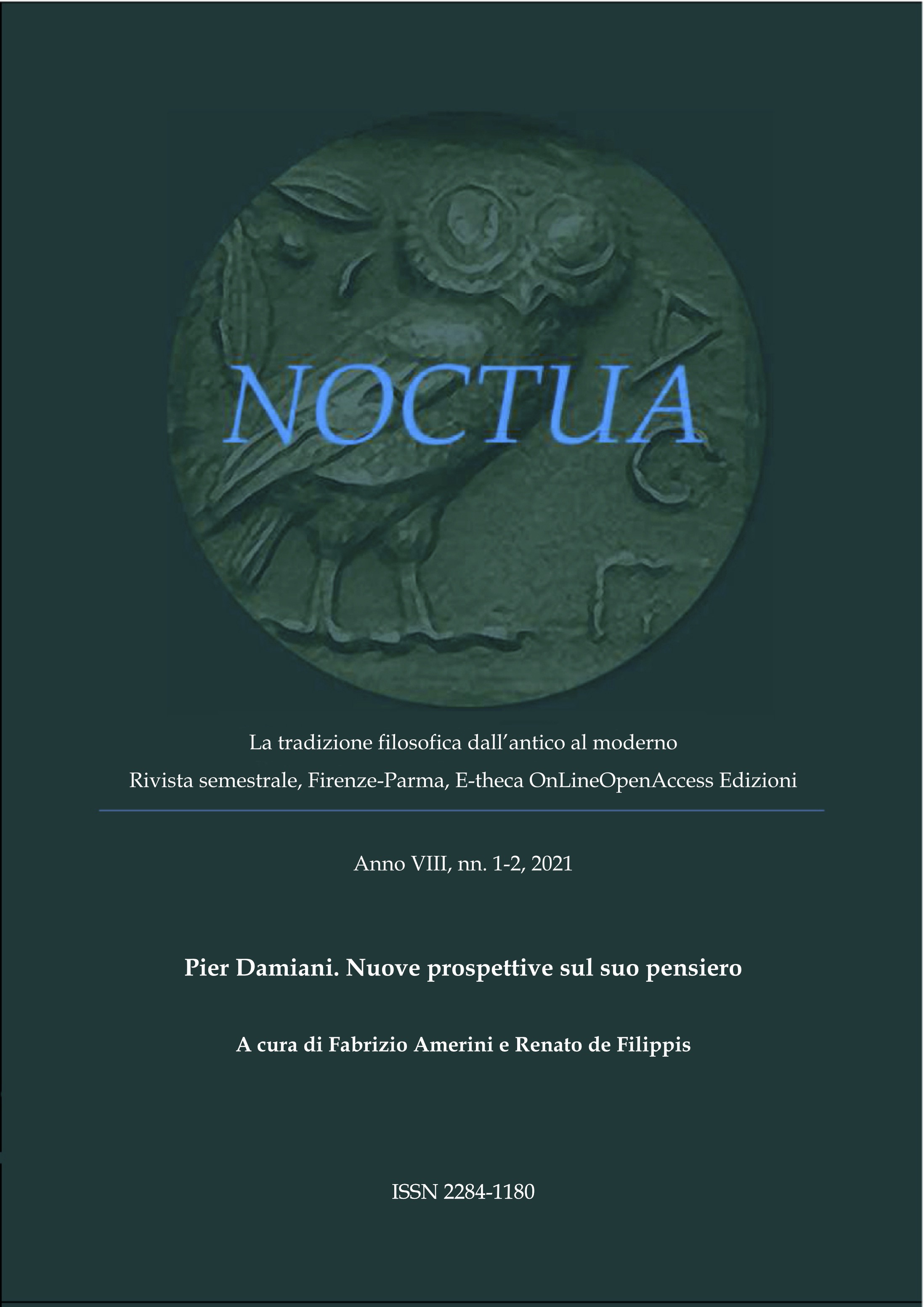Scienza mondana e sapienza di Dio nel trattato antigiudaico di Pier Damiani
DOI:
https://doi.org/10.14640/NoctuaVIII2Parole chiave:
Church, reform, reason, dialectic, othernessAbstract
In the second half of the eleventh century, monastic culture found the theoretical support for the project of ecclesiastical reform in which it participates in the ratio fidei, in the enhancement of the sciences and in the refinement of argumentative techniques, with which to adapt the behaviour of Christians to the Truth of the Mysteries and to the reality of the sacraments. The reform project that supports the need of the institutional Church to restore the powers and moral credit lost in the last two centuries conflicts in several places with a more radical and universalistic conception of the Church as the people of God. And the stakes of this conflict must be sought not in a theoretical aspect but in the defence or downsizing of the Church’s magisterial function. In this context, Pier Damiani’s participation in the debate on Judaism manifests at least three general aspects, in addition to a constructive attitude on the relationship with cultural otherness. In the first place he confirms the attitude of monastic culture to the theological use of the arts; secondly, he explicitly identifies an ancillary role for reason with respect to faith; finally, he implicitly clarifies the ideological nature of the internal oppositions of the reformer movement.
##submission.downloads##
Pubblicato
Fascicolo
Sezione
Licenza
Noctua pubblica contributi Diamond Open Access secondo i termini della licenza CC BY / Noctua publishes Diamond Open Access contributions under the terms of the CC BY license.






